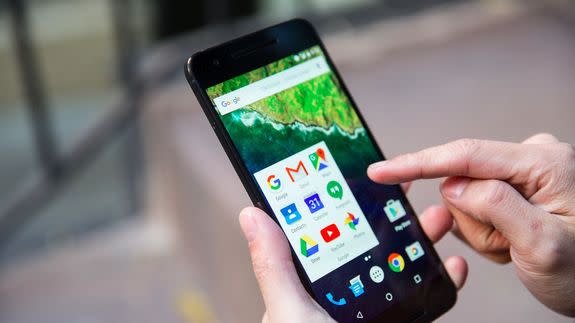Google may 'shame' carriers and manufacturers into updating Android faster

Google may be taking a new tactic in persuading phone manufacturers and carriers to push out Android updates faster.
The company is considering a plan that would publicly "shame" device makers and carriers who don't keep up with the latest Android software updates, according to a new report in Bloomberg.
SEE ALSO: Android is boring
Google has created a list that ranks smartphone manufacturers and carriers "by how up-to-date their handsets are, based on security patches and operating system versions," according to the report. Though the list has only been shared with Google's partners for now, the company is apparently considering making it public in the hopes of "shaming" the companies into doing a better job at keeping their customers' devices up to date.
It's becoming increasingly important for Google to deal with its massive fragmentation problem — that there are thousands of Android handsets on the market, the vast majority of which are not running the most recent version of Android. And, aside from Google's Nexus line, the company depends on carriers and smartphone makers to make security patches and operating system updates available to Android users.

Image: Google
But those partners have a pretty abysmal record when it comes to making those updates available. In one of the most telling statistics, Android Marshmallow, which was released last year, is still only on 7.5% of Android devices, according to Google's own numbers.
As Bloomberg points out, this is a very real problem for Google because it's newer and flashier features (like its Daydream VR platform) are dependent on the latest version of Android. It's also a major security problem. Google regularly pushes out security patches to Android, but it can take weeks or even months for carriers to make them available to their subscribers.
Google is also taking steps to address this within Android itself; the company announced that Android N, the upcoming version of its operating system, will improve the update process for security patches.
But it will need carriers and manufacturers to finally start taking updates seriously if there's to be any hope of solving the problem. Publicly outing those who don't play along may be a good place to start.
